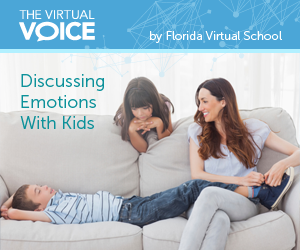Meta-Emotion
 This past Sunday was National Parents’ Day. In this blog post, we’ll explore why parents should make talking about emotions with their child a priority.
This past Sunday was National Parents’ Day. In this blog post, we’ll explore why parents should make talking about emotions with their child a priority.
As infants, the emotional connection lays the foundation of child-parent attachment. During the preschool years, emotion education is used to help children learn about their own emotions and to help manage their behavior. As children grow, the child’s focus centers around school-related activities, and friends take center stage. Parents might think children of this age have learned to regulate their emotions. However, adolescence often presents a challenging parenting environment, where children attempt to assert their independence.
Research suggests that children between the ages of 5 and 15 still need their parent’s help in learning to regulate their emotions (Gottman, 2013). This can be important when students enter into an educational setting where they are required to work collaboratively with peers, teachers, and other faculty.
Dr. John Gottman (2013) suggests talking with your child about meta-emotion. Meta-emotion is how you feel about your own as well as others’ emotions. Meta-emotions is understanding your own feelings about emotions and how or whether they should be expressed. One behavior to practice with your child or student while working on meta-emotion is using nonjudgmental language.
Here’s an example of how a teacher or parent might incorporate meta-emotion when a student did not complete all of her schoolwork before engaging in free-time activities. The adult says, “I see you haven’t completed your school work for the day. It needs to be completed before you have your free time. Next time, complete your school work first.” Avoid saying, “What is wrong with you? You’re so irresponsible! You never follow directions!”
Another example might be a student who is upset about something a friend wrote online. The adult says, “I see that you are upset about what your friend wrote online. I just want to let you know that it is okay to feel hurt, and I am here for you if you want to discuss your feelings.” Avoid saying, “You’re too sensitive. Toughen up! You’ll be friends again in no time. It’s really not a big deal.”
Like adults, children have a need for dignity. In order to become respectful of others, children need to feel understood and be treated with respect. When speaking to your child as a parent, speak objectively about what you see, and when appropriate, empathize with your child’s feelings. This sets the stage for many learning opportunities for both the child and the parent.
References:
Gottman, J., & Gottman, J. (2013). Emotion Coaching: The Heart of Parenting. Seattle: The Gottman Institute.
Post by: Jessica Richardson, Florida Virtual School Counseling Intern
